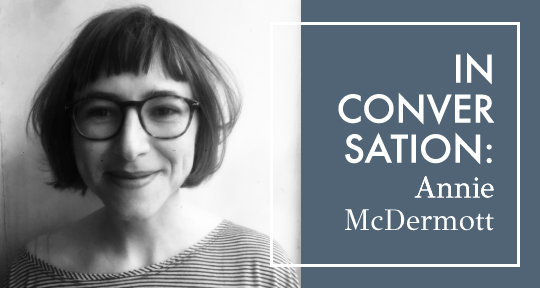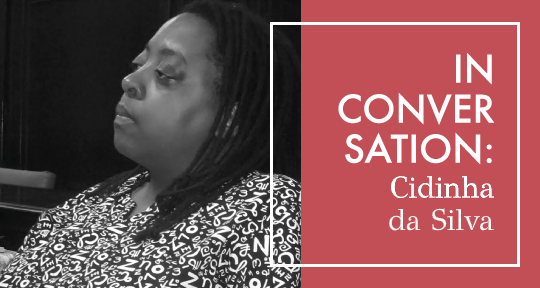Annie McDermott is a London-based literary translator working from Spanish and Portuguese into English, bringing to readers the works of acclaimed Spanish-language authors like Mario Levrero, Ariana Harwicz, and Selva Almada. She now adds into her exceptional oeuvre Brenda Lozano’s Loop, a fragmented novel that takes the form of its protagonist’s personal notebook, kept while her boyfriend Jonás is away in Spain. A wonderfully wandering text that traces the myriad pathways of the mind, Loop is the English debut of one of Spanish-language literature’s rising stars and an immersive, innovative introduction to Lozano—who is already a widely influential writer in her native Mexico. I recently had the pleasure to correspond with McDermott over email, and quickly took to her; she is as excellent an epistler as she is a translator, her prose suffused with wit and poise. During our exchange, McDermott graciously shared with me her approach to dialectical difference, her fragmented method of translation, and her love of phrasal verbs.
Sophia Stewart (SS): You translate fiction and poetry from Spanish and Portuguese. How did you come to pursue both of these languages? What’s your literary-translation origin story? Do you find you enter a different “zone” depending on which language you’re translating?
Annie McDermott (AM): I learnt Spanish by mistake and Portuguese on purpose—or maybe “by chance” is more accurate than “by mistake.” I moved to Mexico after finishing university, on a bit of a whim, and ended up staying for a year, teaching English and learning Spanish and living the sort of bilingual life that I’d always found both completely fascinating and completely distant from my monolingual upbringing in the south of England. I realised I loved spending time in the space between languages, and that was what led me to think about translation. I then moved to Brazil, to São Paulo, with the specific aim of learning Portuguese so I could translate Brazilian literature as well.
As for the zones: I think mostly the zone depends on the text rather than the language, but the zone does change from language to language as well. I learnt both Spanish and Portuguese as an adult, and when you learn languages as an adult you often vividly remember the circumstances in which you first encountered particular words, meaning that your existence within that language is strewn with all these different memories of people, places and situations. So in a sense, switching between languages means switching between different sets of memories.
SS: Allow me to geek out for a second, because I studied Spanish dialectology and sociolinguistics in undergrad. With so many regional differences in Spanish, how do you approach issues of dialect in your work? Translating, for instance, a Mexican author and an Argentine author would be totally different, from the conjugations to the slang. Did you learn a specific dialect of Spanish first, and then expand out to others from there? Do you feel most comfortable with a particular dialect?
AM: What a great thing to study! I’m jealous. Yes, there are so many regional varieties, and it’s one of the things that makes Spanish such a fascinating language. One of my favourite things is looking something up on the WordReference forum and finding an extensive thread full of people weighing in from different countries, and even different regions of different countries, each with a completely different idea of what the word means.
I learnt Spanish living in Mexico, and it’s definitely Mexican slang, rhythms, and speech patterns that I feel most comfortable with. When it comes to translating other varieties of Spanish, I think the important thing is remembering how little you know—it’s so easy to be tripped up. This is another reason why I’m in awe of people who translated before the internet; nowadays, you can watch films and videos, and read news articles, social media posts, etc. etc., from whichever region you happen to be working on, and get a feel for it that way as well. READ MORE…















